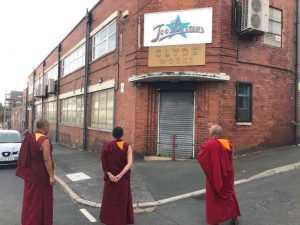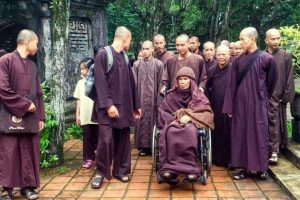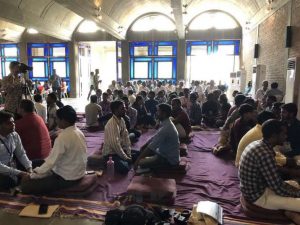Based in Hong Kong, Leung Man Tao is a respected commentator on a vast spectrum of social issues in China. After converting to Theravada Buddhism, he remarked: “Buddhism is not Chicken Soup for the Soul, it tells us to live in the present and be true to yourself.” Leung’s observation hearkens back to the Kalama Sutta, in which the Buddha advises us to trust our own experience and engage in free inquiry. Leung also urges his readers to trust their critical thinking and be courageous about honesty.
The Buddhist way of life calls us to be willing to question what is passed off as popular or authoritative truth. In the Kalama Sutta, the Buddha seemed to advocate a mild, open-minded scepticism that prevents us from being deceived (and then feeling betrayed) by the ignorant, selfish, or opportunistic. 2,550 years later, Buddhism still remains all about intellectual honesty.
Buddhism, like all good philosophy, is a challenge not only intellectually, but also in a directly personal way. It challenges old habits of thinking, self-importance, and cries out in support for the oppressed and downtrodden. The Word of the Buddha (buddhavacana) is spoken loudly for those that have no voice, or have been forcibly silenced.
Buddhism is real because it deals with real things, things that would certainly never be accepted in a Disney movie. There are things in samsara that are much worse than the most diabolical of fictional villains. The evil of Disney baddies is literally entertainment compared to the barbarity or deceit real humans are capable of. Stephen Batchelor, a prominent Buddhist author, once noted how the religious violence of September 11th shook him out of his “complacency” – a word that has become associated with a preference for simple answers in a numbingly complex global village. The recent tragedy in Manila, during which eight Hong Kong tourists lost their lives to a rogue ex-policeman, also proved that human beings – no matter what they believe in – can be overwhelmed by primal forces of negativity, despair, and desperation.
So although Buddhism is about love and compassion, we know that too many stories in real life end in tragedy, deception, or unfairness. Buddhism remains a call of active undertaking in a world fraught with moral dilemmas and injustice (without forgetting our Zen sense of humour).
In a world of modern injustice, what is the role of philosophers – formal and informal alike – such as Leung Man Tao? Leung is convinced that the idea of “Buddhism versus social engagement” is a false dichotomy, and a worn-out one as well. This mischaracterization is something that he has had to address on several occasions because his vocation is one of a writer-thinker. For him, history has demonstrated time and again that people can be Buddhists while being engaged in society’s affairs. To misunderstand the spiritual way of life as “either for or against” the world is to stray from the Middle Way. Why can one not be socially engaged whilst practicing non-attachment from the emotions that activism rouses? This undertaking of social issues is the path he sees for the Buddhism of the future.
When speaking about the role of public intellectuals, Leung declared that he was inspired by Theodor W. Adorno’s principle of “autonomy”. It asserts that art has its own rules and laws, and that nothing else governs it. Artistic value makes no reference to political or commercial value (and may actively defy such values). Buddhism also plays by its own rules, although they are geared toward benefiting beings rather than to just ensure a fair game. The question is how we can step up to the plate, in each of our own unique, individual ways.










